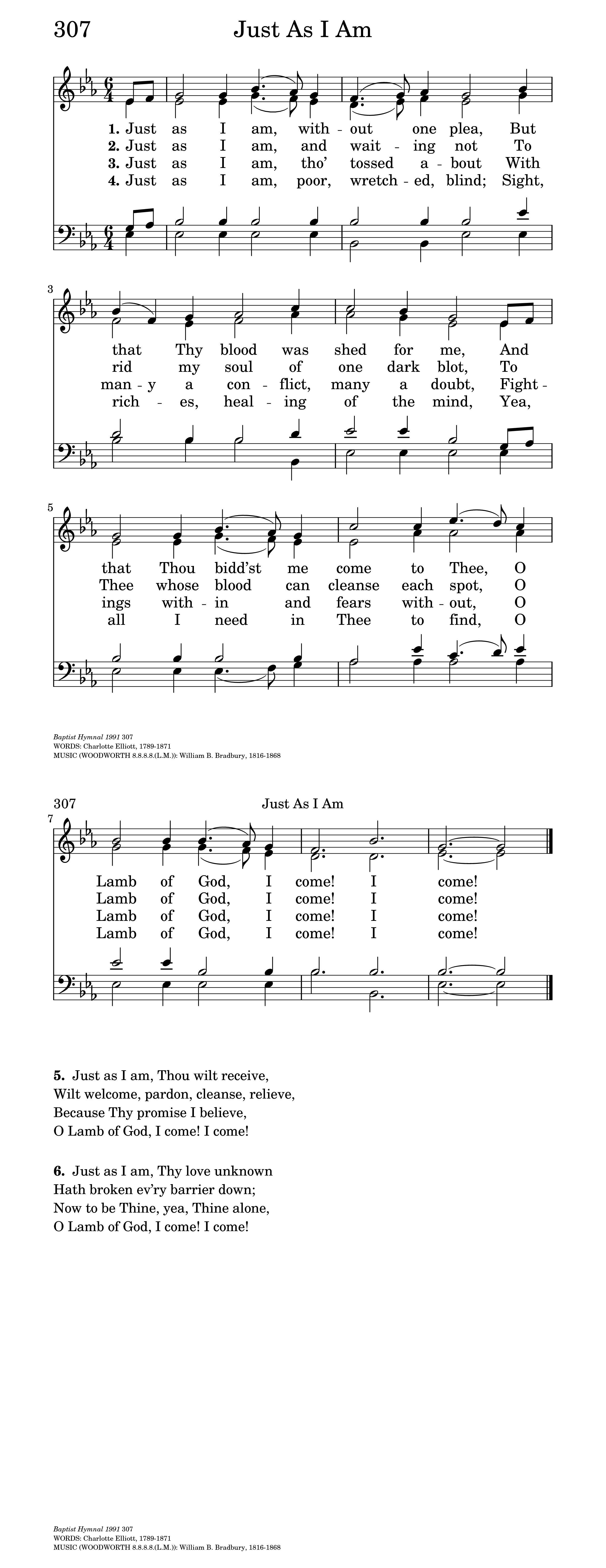but that thy blood was shed for me,
and that thou bidd'st me come to thee,
O Lamb of God, I come, I come.
2. Just as I am, and waiting not
to rid my soul of one dark blot,
to thee, whose blood can cleanse each spot,
O Lamb of God, I come, I come.
3. Just as I am, though tossed about
with many a conflict, many a doubt,
fightings and fears within, without,
O Lamb of God, I come, I come.
4. Just as I am, thou wilt receive,
wilt welcome, pardon, cleanse, relieve;
because thy promise I believe,
O Lamb of God, I come, I come.
Story Behind the Hymn: “Just As I Am, Without One Plea”
Written by Charlotte Elliott, 1835
“Just As I Am” is one of the most enduring and beloved invitation hymns in Christian history, tenderly capturing the soul’s surrender to Christ. It was written by Charlotte Elliott, a woman whose life was marked by physical suffering, deep introspection, and unwavering faith.
Charlotte was born in Clapham, England, in 1789 into a well-educated, devout Anglican family. In her early years, she was known for her artistic talent and witty personality. But her life changed dramatically when, at the age of 32, she was struck by a severe illness that left her chronically weak and in poor health for the rest of her life. The illness confined her to her home, where she often battled depression and spiritual doubt.
In 1822, during a visit by Swiss evangelist Dr. César Malan, Charlotte expressed frustration over her inability to “prepare” herself to come to Christ. Dr. Malan responded gently: “Come just as you are.” These simple words would stay with her for years. Though she was already a Christian, Charlotte often wrestled with feelings of unworthiness, especially as her body grew weaker.
Thirteen years later, in 1835, Charlotte was unable to attend a charity bazaar at her church due to her illness. While others were bustling with activity, she sat alone, reflecting on her spiritual struggles. That day, she took up her pen and wrote the words that became “Just As I Am.” It was her personal declaration of faith and peace with God—not based on her strength or merit, but solely on Christ’s grace.
The hymn was first published in The Invalid’s Hymn Book, a collection she edited for people struggling with illness and suffering. It quickly became a favorite in England and America alike. Later in the 19th century, it gained special prominence during the evangelistic campaigns of Billy Graham, who used it as the altar call song for nearly every crusade.
The gentle, pleading verses and the unchanging refrain “O Lamb of God, I come” have helped countless people take their first steps toward Christ. It’s a hymn not just of surrender, but of assurance—reminding us that we don’t need to clean ourselves up to come to Jesus. We come broken, unworthy, and in need—and He receives us with open arms.



No comments:
Post a Comment